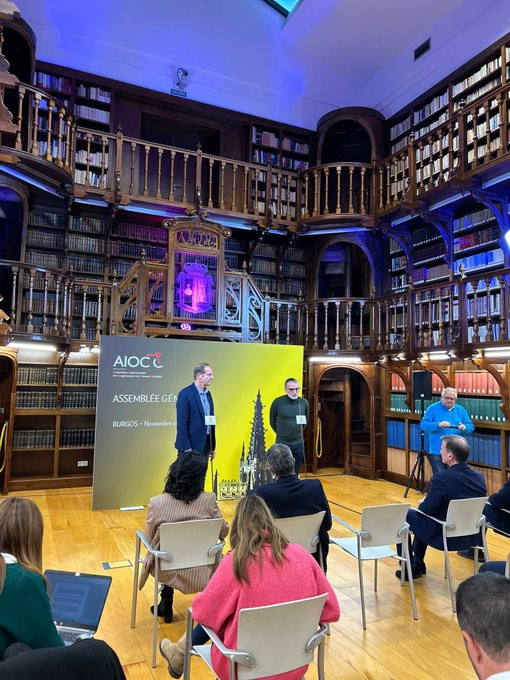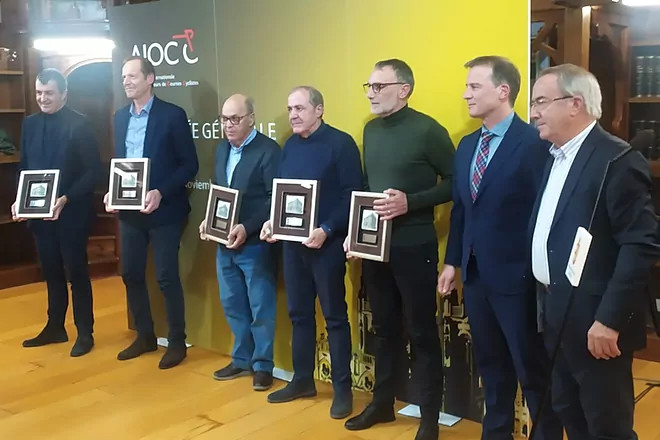On Thursday, Burgos hosted a meeting between the leaders of the Giro, Tour, and Vuelta. Mauro Vegni, Christian Prudhomme, and Javier Guillén discussed the current state of cycling at the Provincial Council of Burgos.
During the congress of the AIOCC (International Association of Cycling Race Organizers), the three top leaders of the sport spoke to the present press to clarify doubts surrounding the peloton. Before this evening event, the association’s ordinary general assembly and the board of directors’ meeting took place, defining the working foundations for the future.

Safety was the central theme.
Safety was the main focus of the entire congress. “This does not imply a negative approach but rather an effort to ensure enhanced cooperation among organizers, teams, UCI, cyclists, and other stakeholders, improving safety in races,” clarified Javier Guillén in an interview with the Spanish newspaper Marca. He expressed satisfaction that the congress took place in Spain for the first time.

The new system will be called “Safer.”
The “Safer” system, as reported by MARCA, would be funded by the UCI, cyclists, organizers, and teams. They would appoint independent judges to work in this group, ensuring the safety of the race.
Their responsibilities would include checking if any cyclist is not playing a correct role in the race, ensuring the route is correct, and examining elements that the race judges themselves may not have fully supervised.
Possibility of introducing warning cards
Additionally, there is a possibility of introducing yellow cards, similar to football, that could penalize riders involved in inappropriate behavior during the race. This system would not only bring economic innovations but also revolutionize the current landscape, as assessments so far have been predominantly financial.
Cycling has evolved in various areas, but in terms of safety, it has lacked a clear strategic plan for years, something that is now aimed at establishing.



